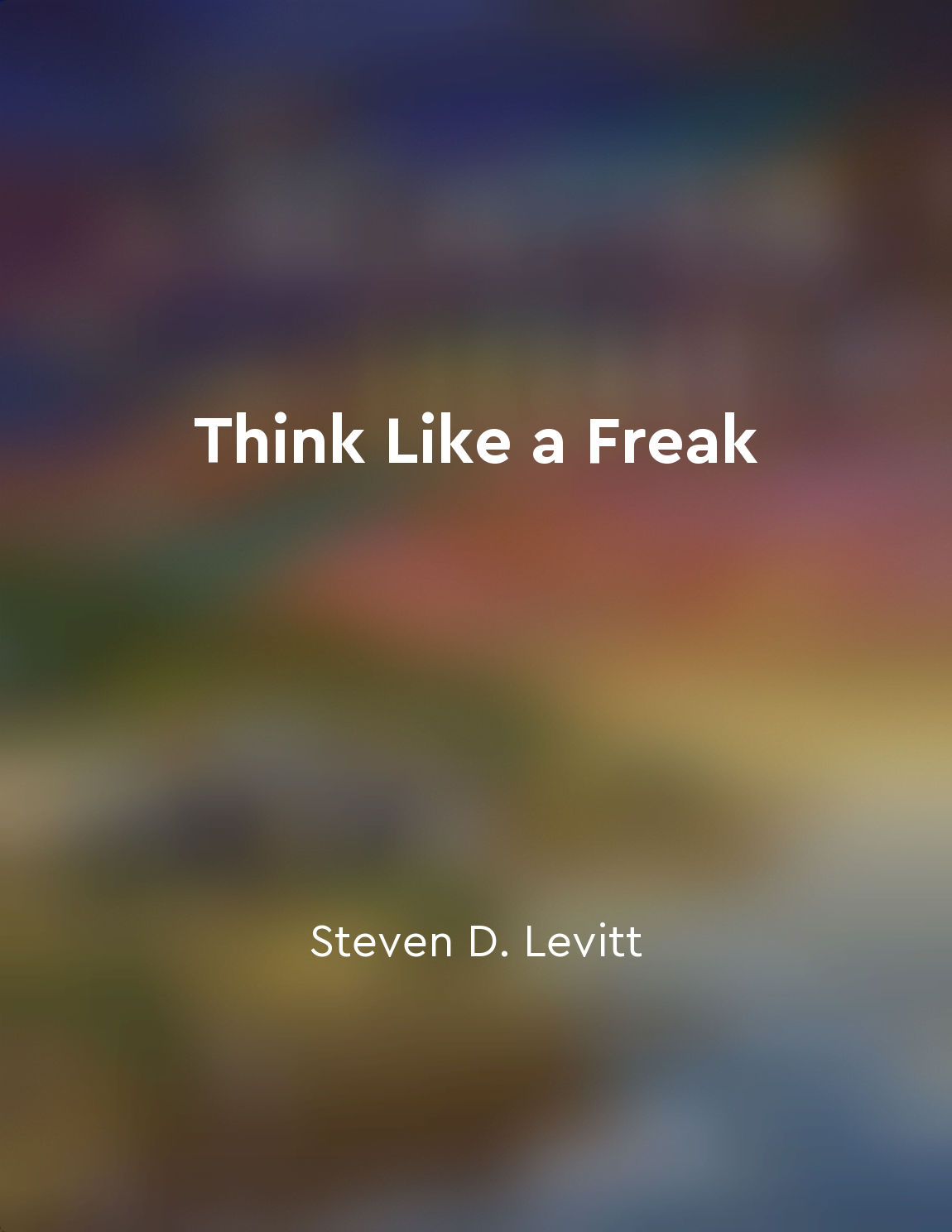Consider the unintended consequences from "summary" of Think Like a Freak by Steven D. Levitt,Stephen J. Dubner
When we make a decision or take an action, we often focus on the immediate outcomes that we expect to happen. We consider the benefits and costs that are apparent to us at the time. However, this approach can be shortsighted because it fails to account for the unintended consequences that may arise as a result of our choices. These unintended consequences can be both positive and negative, and they can have far-reaching impacts that we may not have anticipated. For example, when policymakers implement a new law or regulation, they typically do so with the goal of addressing a specific problem or achieving a particular objective. However, they may not fully consider how the new policy will interact with existing laws and regulations, or how it will affect different groups of people. As a result, the unintended consequences of the new policy may outweigh its intended benefits, leading to unexpected outcomes that can be detrimental to society as a whole. One way to avoid falling into this trap is to think more broadly and critically about the potential consequences of our actions. Instead of just focusing on the immediate outcomes that we expect to happen, we should also consider the possible ripple effects that may occur as a result of our choices. This requires us to take a step back and think more strategically about the various ways in which our decisions could play out in the future.- We can make more informed and thoughtful decisions that take into account the full range of potential outcomes. This can help us to avoid making choices that may have negative repercussions in the long run, and to identify opportunities for positive change that we may not have initially considered. Ultimately, thinking about unintended consequences can help us to be more proactive and effective in our decision-making, leading to better outcomes for ourselves and for society as a whole.
Similar Posts
Education is important for cultivating happiness
Education plays a crucial role in shaping individuals' happiness. It is through education that people acquire the knowledge and...
We often make decisions based on emotional reactions rather than logic
In the heat of the moment, when faced with a decision or dilemma, our emotions often take the lead, steering us towards a parti...
Rational actors make decisions based on selfinterest
Rational actors are individuals who are driven by self-interest when making decisions. This means that they carefully weigh the...
Specialization leads to increased productivity
When individuals or businesses specialize in what they do best, they can produce more output with the same amount of resources....
Economies of scale drive industry structure
One of the key factors that shape the structure of industries is the concept of economies of scale. This concept refers to the ...
Inclusive policies promote social equality
Inclusive policies are essential for maintaining social equality. When societies adopt inclusive policies, they ensure that all...
Embrace controversy
The essence of effective communication lies in the ability to stir emotions and provoke thought. Controversy, with its inherent...
Tradition plays vital role
In the realm of common law, tradition is not merely a historical artifact, but a living force that shapes the very essence of l...


